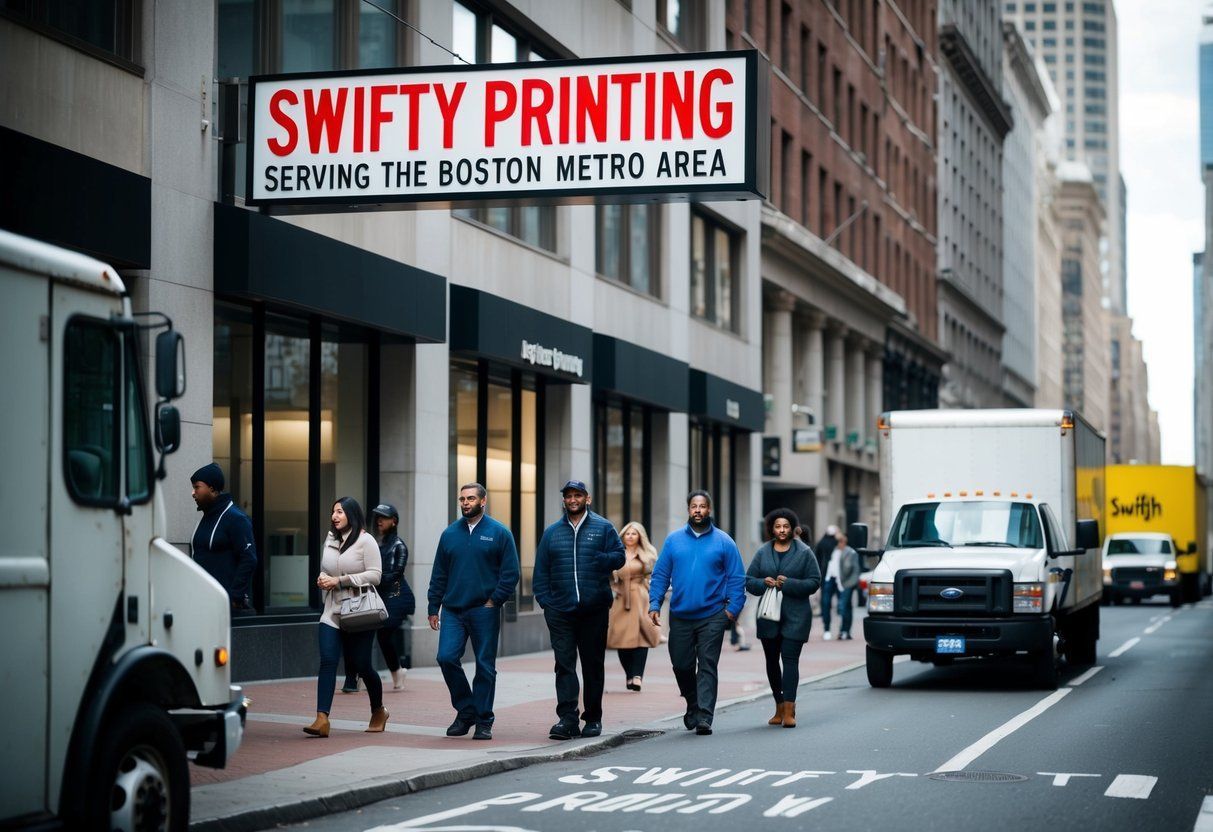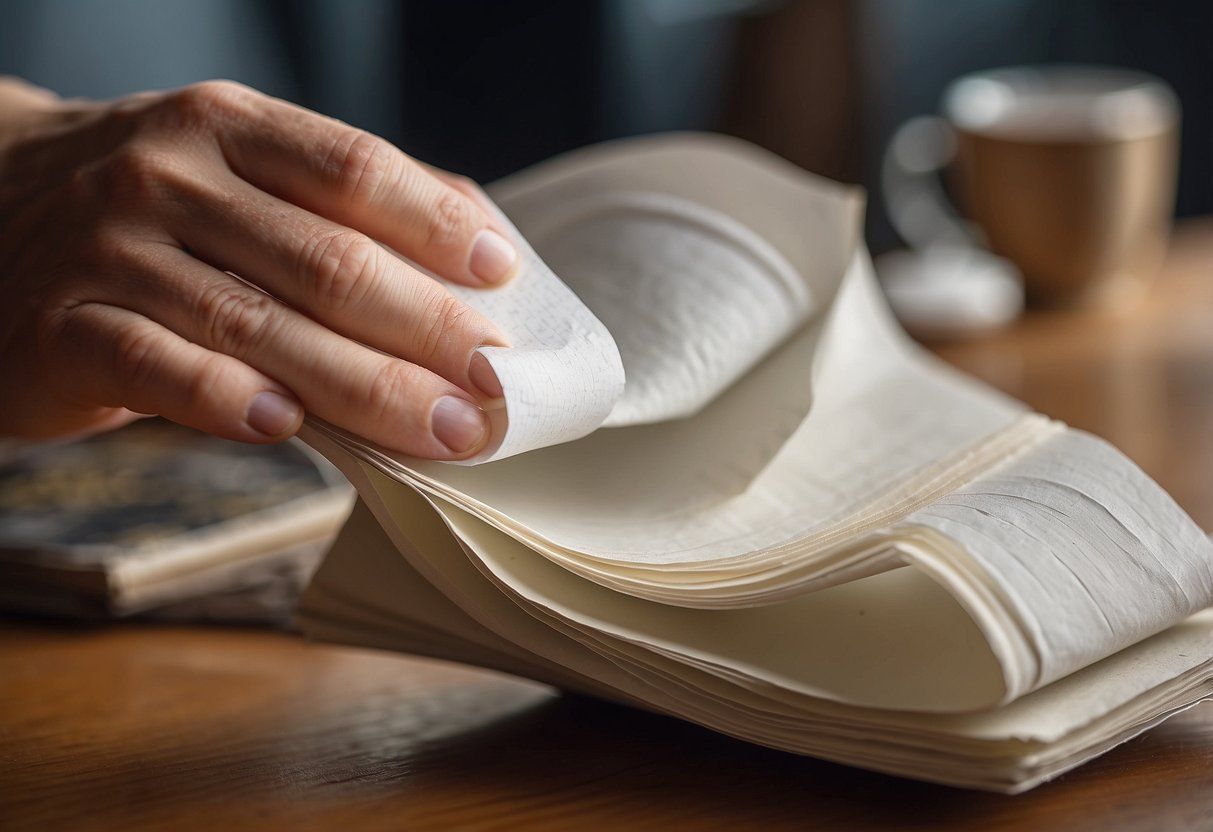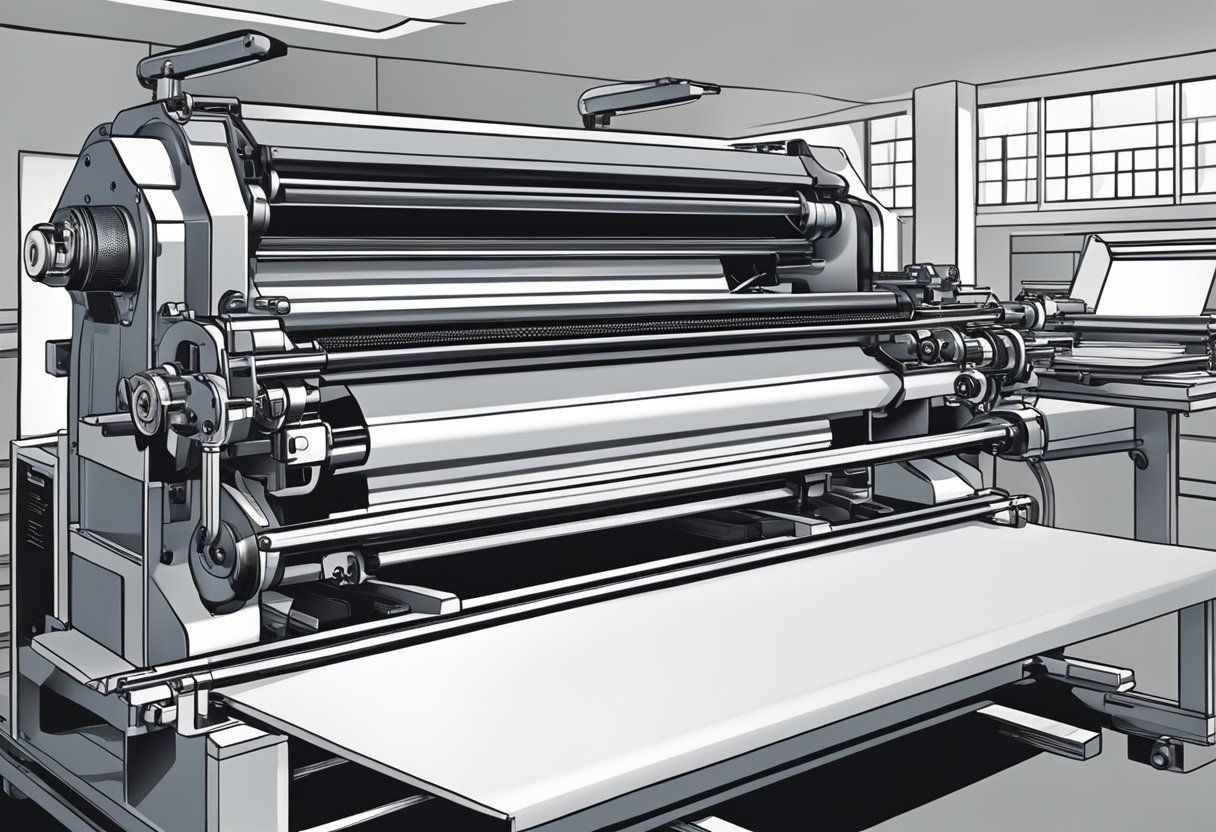The Importance of High-Quality Business Cards in Boston’s Competitive Market for Networking Success
In Boston’s fast-paced business scene, standing out is essential. High-quality business cards serve as a vital tool in making a lasting impression .
They not only showcase a brand’s identity but also enhance networking efforts and open doors to new opportunities.

Designing an effective business card can set one apart in a crowded marketplace. A well-crafted card reflects professionalism and attention to detail, which are qualities that clients and partners value.
As more professionals recognize the impact of a memorable card, the competition only increases, making it crucial to invest in quality.
In addition to aesthetics, the strategic use of business cards can create a competitive edge. Small businesses, in particular, can benefit greatly by using creative designs and materials that resonate with the local culture.
Making connections in Boston is vital, and business cards remain a tangible way to foster these relationships.
Key Takeaways
- High-quality business cards enhance networking in Boston’s competitive market.
- Effective design showcases professionalism and sets one apart.
- Small businesses can gain a competitive advantage through strategic card use.
Understanding the Market Context

In Boston’s competitive market, several factors shape how businesses operate. Recognizing the local economic landscape helps in making informed decisions.
Additionally, the ongoing effects of Covid-19 and the rise of digitization impact various aspects of business, including marketing and product offering.
Boston’s Economic Landscape
Boston has a robust economy known for its diverse industries. Key sectors include education, healthcare, finance, and technology. This mix supports numerous startups and established companies alike.
The city’s market share reflects a strong demand for quality products and services. Businesses often compete on innovation and customer service. This competitive environment makes it essential for companies to stand out.
A strong product portfolio is vital. High-quality business cards serve as a tool for branding and networking. They convey professionalism and can leave a lasting impression on potential clients.
Covid-19 Impact on Local Businesses
The Covid-19 pandemic significantly affected Boston’s economy. Many businesses had to adapt quickly, such as shifting to online platforms and rethinking marketing strategies.
Digitization became crucial for survival. Companies that embraced online tools were better positioned to thrive.
While some industries suffered, others saw growth. For example, e-commerce and digital services expanded rapidly. Businesses focused on enhancing their supply chains to meet changing customer needs.
Overall, the pandemic highlighted the importance of adaptability. High-quality business cards remain relevant in a digital world. They still offer a personal touch that can strengthen business connections.
The Role of Business Cards in Networking
Business cards play a vital role in networking, particularly in a competitive city like Boston. They serve as a physical representation of a person’s professional identity.
Having a well-designed business card can enhance connections and facilitate communication.
Networking Events in Boston
Boston hosts numerous networking events throughout the year. These events attract professionals from various fields.
At these gatherings, individuals exchange business cards to establish connections.
Business cards allow for quick sharing of contact information , making it easy for people to remember each other. A well-designed card can serve as a memorable keepsake that attendees can refer back to later.
Having a physical card at these events encourages interaction. It provides a way to bridge conversations and helps participants follow up after the event. Without business cards, these opportunities might be lost, as verbal introductions can easily fade from memory.
Creating a Strong First Impression
The first impression can determine the outcome of a networking opportunity. A professional and eye-catching business card can set an individual apart from others. It reflects one’s personal brand and attention to detail.
Key elements of an effective card include clarity and completeness. Important contact information should be easy to read, including name, phone number, and email.
Design elements, such as font choice and color scheme, should convey professionalism. A card that looks polished can make a lasting impact.
Strategic Importance of Business Cards

Business cards play a crucial role in establishing a brand identity and strategic positioning in Boston’s competitive market. They offer tangible representation of a business, reinforcing its message and professionalism.
Business Cards as Part of Brand Identity
A business card is a vital part of a company’s brand identity. It reflects the business’s values, mission, and aesthetics.
The design, color, and material of the card can convey much about the brand. For instance, a sleek, modern design might appeal to tech firms, while a classic look suits traditional companies.
A well-crafted business card creates a memorable first impression. It establishes credibility and enhances recognition. When potential clients or partners receive a card, they hold a piece of the brand, which can strengthen recall and encourage future interactions.
The Boston Consulting Group Matrix Connection
The Boston Consulting Group (BCG) Matrix is a tool that helps businesses analyze their product portfolio. Business cards can play a role in positioning within this framework.
For example, high-quality cards might represent “Stars” that the business is actively promoting. Conversely, businesses may use simpler cards for products labeled as “Dogs” or “Question Marks” to minimize costs.
By aligning business cards with their overall business strategy, companies can allocate resources effectively. This can enhance visibility where it matters most, allowing businesses to focus on their most profitable areas.
Business Cards in a Digital Era
In a digital world, business cards still hold value. While websites and social media profiles are important, a physical card provides a personal touch that digital platforms cannot replicate.
Business cards facilitate direct contact in networking events or meetings, allowing for immediate communication of a brand’s essence.
Moreover, cards can incorporate QR codes linking to digital portfolios or websites. This blend of traditional and modern approaches ensures that businesses stay relevant.
In an age of digital transformation, maintaining a strong, physical presence through business cards can complement online efforts and enhance overall brand strategy.
Designing Effective Business Cards
Creating effective business cards is essential for standing out in Boston’s busy market. A well-designed card not only delivers contact information but also reflects a person’s brand and professionalism.
Key Elements of a Business Card
Effective business cards should include crucial elements that make them functional and memorable. Key details to add are:
- Name : The person’s name should be prominent, ensuring it is easily recognized.
- Title : Include a job title or role to clarify the individual’s position.
- Contact Information : This includes phone numbers, email addresses, and websites. Ensure these are up-to-date and clear.
- Company Logo : A logo can enhance brand recognition and provide a professional look.
- Tagline or Description : A brief tagline outlining services can give recipients an idea of what to expect.
Using legible fonts and proper spacing is important. It helps the card look neat and organized.
Graphic Design Principles
Good graphic design can make a business card stand out from the competition. Important principles to consider include:
- Color Scheme : Choose colors that align with brand identity while ensuring readability. High contrast helps text stand out against the background.
- Font Choice : Opt for simple, professional fonts. Avoid overly decorative styles that may hinder legibility.
- Layout : Maintain a balanced layout. The arrangement of elements should guide the reader’s eye naturally across the card.
- White Space : Use white space wisely to avoid a cluttered look. It can help emphasize key information.
Following these graphic design principles will create a card that makes a strong impression while delivering necessary details clearly.
Business Cards for Small Businesses
High-quality business cards can significantly impact small businesses in Boston’s competitive market. They serve as a tool for marketing and can improve operational efficiency by providing valuable data insights.
Leveraging Business Cards for Market Growth
For small businesses, business cards are a chance to make a strong first impression. A well-designed card can showcase the brand’s identity and make it memorable. Cards can include key details like:
- Business name
- Contact information
- Tagline or services offered
When shared at networking events, business cards can open doors to new clients and partnerships. They act as mini brochures that represent the business even when the owner is not present.
This marketing tool helps in cultivating relationships and attracting potential customers.
Operational Efficiency and Data Insights
Business cards can also enhance operational efficiency for small businesses. When using tools to track the cards distributed, owners gain insights from data . This information can include:
- Locations of potential clients
- Response rates to certain designs or offers
By analyzing these patterns, businesses can focus their efforts more effectively.
Knowing where to invest time and resources can lead to improved targeting and better results. Small businesses can adjust strategies based on what works best, making every contact count.
Conclusion
High-quality business cards play a crucial role in Boston’s competitive market. They serve as the first impression for potential clients and partners.
A well-designed card reflects professionalism. It shows that a person values their brand and is serious about their business strategy.
Key elements of an effective business card include:
- Clear Contact Information : Ensures recipients can easily reach out.
- Professional Design : Captures attention and communicates credibility.
- Distinct Branding : Aligns with the overall business identity.
In a city like Boston, where competition is fierce, business cards can set someone apart. Quality cards can lead to meaningful connections and opportunities.
Investing in superior business cards is a smart strategy. It demonstrates commitment to excellence and attention to detail.
For anyone looking to thrive in the Boston market, prioritizing business cards is essential. They are not just paper; they are tools for growth and impression.
Frequently Asked Questions

High-quality business cards serve important functions for professionals in Boston. They enhance branding, create opportunities for networking, and leave a lasting impression. The following questions address key aspects of how business cards can impact business success.
What benefits do high-quality business cards provide to professionals in Boston?
High-quality business cards offer a form of professionalism and credibility. They help individuals stand out in a crowded marketplace. This can lead to increased trust and recognition among potential clients and partners.
How can business cards contribute to a company’s branding strategy?
Business cards reflect a company’s image and values. A well-designed card can reinforce brand identity through colors, logos, and fonts. This consistency helps in making memorable impressions that align with a business’s goals.
In what ways do professional business cards create networking opportunities?
Professional business cards facilitate easy exchanges of contact information. They serve as conversation starters and reminders of interactions. This can lead to future meetings and partnerships in the business community.
What are the key design elements that make a business card effective in Boston’s market?
Effective business cards use clear typography, balanced layout, and quality materials. They often include essential information such as name, position, and contact details. Attention to local aesthetic preferences can also enhance appeal.
How do high-quality business cards influence first impressions in business interactions?
First impressions matter in business. A high-quality card suggests attention to detail and commitment to professionalism. This can create a positive perception and encourage further discussions.
Why are physical business cards still relevant in the era of digital networking?
Physical business cards provide a tangible connection that digital tools cannot always replicate. They are easy to share in face-to-face meetings and events.
Many people still value the personal touch that a physical card offers.…










